Top 250 Movies Like Tales Of King Matthias
A list of the best movies similar to Tales of King Matthias. If you liked Tales of King Matthias then you may also like: Yesterday, The Little Fox, Werckmeister Harmonies, Natural Light, The Nutcracker: The Untold Story and many more great movies featured on this list.
Tales of King Matthias is a Hungarian television animated film series about King Mátyás, shown in 1984, produced by Pannónia Filmstúdió from 1981 to 1982. The director of the animated feature film series is László Újváry. Ábel Kőszegi and László Újváry wrote the script, the music was composed by the band Kaláka and produced by Ferenc Mikulás. It first aired between February 18, 1984 and May 12, 1984. In Hungary, it was broadcast by M1, M2, Duna TV, Fox Kids / Jetix, Kiwi TV and Super TV2.
The Little Fox
A tale about a little fox Vuk from the novel of the famous Hungarian writer István Fekete.
Werckmeister Harmonies
A mysterious circus excites a small Hungarian town into a rebellion when a promised act doesn't perform.
Natural Light
World War II, occupied Soviet Union. István Semetka is a simple Hungarian farmer who serves as a Sub-Lieutenant in a special unit scouting for partisan groups. On their way to a remote village, his company falls under enemy fire. As the commander is killed, Semetka has to overcome his fears and take command of the unit as he is dragged into a chaos that he cannot control.
The Nutcracker: The Untold Story
Set in 1920s Vienna, this is the tale of a little girl, whose godfather gives her a special doll one Christmas Eve.
Just Sex and Nothing Else
The attractive, 32-year old and single Dora edits scripts for plays and is working on "Dangerous Liaisons." One day when her lover shoves her, half-naked, out on a balcony at the sudden appearance of the wife that Dora didn't know he had, Dora is rescued by a handsome man named Tamas.
The Conquest
Filmed in commemoration of Hungary's 1100th anniversary and on the sites of the actual events, a cast of thousands authentically recreates the 896 AD arrival of the Magyar chief Arpad (Nero) and his seven tribes into the Carpathian basin from the steppes.
The Tyrant's Heart, or Boccaccio in Hungary
A historical drama set in the 1400s, a young man sent to Italy but is forced back after his father's mysterious death.
Son of Saul
In the horror of 1944 Auschwitz, a prisoner forced to burn the corpses of his own people finds moral survival trying to save from the flames the body of a boy he takes for his son.
Moscow Square
1989 is an important year in the political history of Hungary. However, Petya and his friends couldn't care less. They are about to graduate high school. The only important things to them are the parties, girls, making some easy cash. And of course, passing the upcoming exam with the leaked questions.
Flowers of Reverie
The seeming hopelessness of combatting an all-powerful government that will not tolerate political dissension is the focus of this excellent historical drama set in the mid-19th century in Hungary. In the opening scenes, Hungary has just lost its bid for independence from Austria and a Magyar officer, unable to bear the tragedy of defeat and what it means, says an affectionate good-bye to his beloved horse and then shoots the animal and himself. Two years later, Ferenc (Gyorgy Cserhalmi) is trying to eke out a living for his wife and her family -- and at the same time avoid any hint of sympathy for Hungarian independence because the Secret Police are everywhere. Just as life seems to be going well, Ferenc's former commanding officer (Lajos Oze) arrives and begins discussing revolution again -- a futile pursuit at this point in time. The next day, Ferenc is thrown into an insane asylum and everyone else is arrested as well.
Max and Helen
In trying to bring a former concentration camp commandant to justice, Nazi-hunter Simon Wiesenthal uncovers the tragic story of two lovers separated by the war.
The Prince and the Pauper
An adaptation of the classic, "The Prince and the Pauper" is the retelling of Edward Tudor and young Thomas Canty, two amazing look-alikes caught up in imperial intrigue and scandal. In fleeing from his violent father, Tom stumbles into the palace courtyard, and is seen by young Prince Edward, who takes him in. Each desiring to see what the other's life is like, the boys impulsively switch identities... little knowing what disaster lies ahead at this fault of thought. And soon Thomas becomes a pawn in the hands of Edward's malicious and greedy uncle, who would have the kingdom for himself.
Season of Monsters
Zoltai is a Hungarian professor who returns home after a visit to the United States. Following a television interview, he commits suicide and leaves a note for his longtime friend Dr. Bardocz. The doctor and Zoltai's colleague Komindi join the police in investigating what drove the man to suicide.
Silence of the North
Director Allan King's 1981 drama, based on true events, stars Ellen Burstyn as a strong-willed woman struggling to survive with her family in the Canadian wilderness.
Son of the White Mare
A horse goddess gives birth to three powerful brothers who set out into the Underworld to save three princesses from three evil dragons and reclaim their ancestors' lost kingdom.
Stephen, the King
István, a király ("Stephen, the King") is a Hungarian rock opera written by Levente Szörényi (music) and János Bródy (lyrics), based on the life of Saint Stephen of Hungary. The storyline was based on the play Ezredforduló (Turn of the Millennium) by Miklós Boldizsár, who co-wrote the libretto. The opera was first staged in 1983 on an open-air stage in Budapest. This first performance was also made into a 1984 film, directed by Gábor Koltay, and its music released on an album. The musical became a smash hit and is still very popular in Hungary and among Hungarian minorities in neighboring countries.
Forced March
Ben Kline is an American television star and a bankable name, who is cast to portray the Hungarian writer Miklos Radnoti, whose journal of poems was found with his body, buried in one of Hungary’s mass graves. Kline is also the son of a Holocaust survivor and has long resented his father’s refusal to speak about the War. Now given the opportunity to play the role of a hero, but faced with the reality of a victim, the boundaries between truth and illusion begin to blur.
Lily in Love
Insulted when his screenwriter wife writes a leading role for a younger man, aging Broadway idol Fitz Wynn disguises himself as a handsome young Italian.
The Revolt of Job
The story of a childless Jewish couple in WWII-era Hungary who adopt a Hungarian boy and raise him with their values and traditions.
Kidnapping - Hungarian Style
Three people skilfully kidnap the company director, who never takes the responsibility, takes sleeping pills and spends his time feeding ornamental fish. The kidnappers turn out to be no other than the Engineer, the Technician and the Worker, who only wanted to avoid bankruptcy this way.
The Long Ride
This movie is about the love and protection of a man from another culture for the lowly horsemen of the the plains in Hungary during World War II.
Knight of the TV-screen
This mocking criticism of public life and the media focuses on a TV series. The protagonist of the film, depicting the battles fought for Hungarian castles during the Ottoman occupation, is chosen to be the amateur Prohászka Feri, a worker in the beer-factory.
Don't Pull My Beard!
This absurd story, bordering on the drawing-room comedy, portrays the practices of abusing power and the insolence of bureaucracy through the revolting of a young designer-engineer of the Railway Tilting Examination Board. The ambitious Pócsik works persevearingly on how to compensate for the tilting of railway carriages in bends. His jealous bosses, however, use their best efforts to block the development of an innovation.
Well
At a gas station in the middle of nowhere, a young man arrives to meet his father he hasn't seen for 30 years. On the same day, a van with four prostitutes breaks down at the very same gas station, on the way to Switzerland. The three days they spend together in the station change their lives forever.
The Grandson
Rudi, a polite and quiet office hand, shares a special bond with his elderly grandpa. When Grandpa falls victim to a uniquely heartless phone scam that breaks his spirit and his health, Rudi decides he’s not going to let the petty criminals get away with it. But in order to get close to them, he needs to step far out of his comfort zone and turn into a different person. With a band of grey-haired allies on his side, he might just get to the scammers before it’s too late…
Light behind the Shutter
Torday Géza, a new engineer arrives at the ammunition factory disguised as if manufacturing camping gears. His appearance upsets existing patterns. The director sells the products at a low price in the West. In the meantime diversionaries attempt to destroy the plant. It turns out that Torday is a man of the intelligence built in among the reconnaissance people, as is his childhood lover, Magda. Agents and policemen play the game.
The Treasure of Swamp Castle
Szaffi is a full-length animated feature based on Jokai Mor's books Gypsy Baron (Cyganibaro) and Szaffi. It has adventure, and treasure, and love, and a little black cat, and a war, and picturesque villains - a governor with a pressure release valve in his skull and a fat pig-loving baron, and of course, the good gypsies.
Hungarian Vagabond
A Hungarian historical movie that tells the story of the Hungarian ancestors, the seven leaders, who are looking for their new homeland in the last years of the 9th century. Before they leave their original home in Asia, they have a farewell party. They wake up with a severe hangover after consuming large quantities of kumis. The seven leaders wake up to find that their people have disappeared.
Cyclists in Love
When András, Albert and Bence are on a cycling tour around Lake Balaton, their dreams come true. Sunshine, beach and pretty girls. András and his younger brother run after the same girl, Eszter. András persuade his brother not to pinch the girl. András pick her up one night and split up with her next day. Eszter follows the boy, but András sends her away...
Leila and Gábor
Buda is mastered by the Turks. Student Gábor and his companion flee a troop into the castle, just in the garden of Gül Baba. Gábor and Leila, the daughter of Gül Baba fall in love with each other. Ali pasha, who wants to marry the girl, has the two Hungarians caught in order to let them be executed.
The Phantom on Horseback
A ghost is haunting Lubló: Kaszparek Mihály, trader of wines, does not refrain from haunting his native town even in broad daylight. He rides his horse sitting backwards, pays with false gold and pays frequent visits to his widowed wife, who is far from being appalled by the caresses of her dead husband.
Four Children in the Flood
December 1956. The region by the Tisza is evacuated because of a threatening flooding. Laci, Karcsi and Péter leave their home on the lorry
Guns and Doves
1920 in a mining town in the country-side. The team of children led by Ferkó Boda fish guns and a flag of Red soldiers out of the local lake.
The Red Countess
The plot of the film starts at the beginning of the century, in the heyday of the Andrássy and Károlyi families, during the ever increasing crisis of the Austro-Hungarian Monarchy, and ends with the emigration of the Károlyi couple after the collapse of the 1918-19 revolutions. It tells the story of this historical period (war, revolution, take-over by the proletariat, dictatorship) from the view of an extremely wealthy lady, Andrássy Katinka. The authors tried to evoke the special story during which a strange and unique woman gets thoroughly involved in history through her love and at the same time keeps her own identity and self-governance.
The Kangaroo
Istvan Varju a.k.a. Kanya is a track driver. He drives alone on the roads and listens to the radio. We're In the middle of seventies, the radio broadcasts hungarian beat music. He is convinced that interesting and significant events in the life happen on the roads, so we should go, go and go in order not to miss something.
Hello, My Life!
A popular writer with lack of inspiration (Szabolcs Thuróczy) and his never-seen son meets unexpectedly. From there they have to deal with living with the other in joy, in emtions and with the imagination of the child, this tales goes beyond reality.
Eastern Sugar
Three young friends, from the Hungarian countryside, want more sex and excitement in their life. Together they undertake a journey to Lake Balaton, where they hope to find plenty of summer fun as well as a temporary job.
Hey, Hey, It's the Monkees
Hey, Hey, It's the Monkees is a one-hour comedy special televised on the ABC Network on Monday February 17, 1997. The show features all four of the original Monkees and would be the last time Micky Dolenz, Davy Jones, Michael Nesmith, and Peter Tork would appear together. Michael Nesmith wrote and directed the program.
Sparrows Are Birds Too
A comedy about two twin brothers - Sándor, who emigrated and became a rich man, and Zoltán, who stayed in Hungary and lives the life of an average working-class man. When Sándor visits his twin brother, they are constantly mistaken for each other, and when Zoltán sees how differently people treat Sándor because of his money and his foreign citizenship, he begins to like being mistaken for him - until he realizes that this means he will lose his girlfriend Szöszi...
Once Upon a Mattress
The second television adaptation of Once Upon a Mattress was broadcast on December 12, 1972, on CBS. This production, videotaped in color, included original Broadway cast members Burnett, Gilford and White, and also featured Bernadette Peters as Lady Larken, Ken Berry as Prince Dauntless, Ron Husmann as Harry, and Wally Cox as The Jester. It was directed by Ron Field and Dave Powers. Again, several songs were eliminated and characters were combined or altered. Since the parts of the Minstrel and the Wizard were cut from this adaptation, a new prologue was written with Burnett singing "Many Moons Ago" as a bedtime story.
The Story Of F***
A frustrated music business executive accidentally creates a band called F**K and has to find a group of talentless no-hopers to take on the music industry and become rock stars.
A Harum-Scarum Family
The intellectual family Faragó lives a bit busy life, but ensures complete autonomy for its members in a tiny flat in Budapest, while the newly rich Belvizis in the neighbourhood have a luxury apartment and a conventional and purposeful life, sentencing their only daughter for solitude.
Bald Dog
A Hungarian band plays American rock & roll and blues hits with great enthusiasm and passion, but success seems to avoid them. TV and radio don't play their songs, sometimes even their crowd just sits and sips beer. Something must be done, and the band's leader (Lóránt Schuszter) comes up with the big idea: write and play songs for the people about themselves and not about some exotic, but too distant people's life. "We move from Tobacco Road to Retek street" With the remains of the band and a second singer (Gyula Deák "Bill") they find what they failed to show people before. The rich new sound can finally translate the spirit of blues and rock much more than words from any dictionaries could, this is the Köbánya-blues.
The Pregnant Papa
In the small village of Rátót, every male is called Béla. When a woman gives birth to her child, she names him Józsi...
Cha-Cha-Cha
Gruber is a normal 16-year-old growing up in Budapest in 1962, but he has a problem -- how does he get to know the opposite sex? At the Sunday afternoon dance classes the young "ladies and gentlemen" hold each other while dancing, and that makes the lessons worth something. Otherwise, the pianist's attention wanders and the orchestra does not exactly play with a single-minded dedication. In fact, everybody seems to have other things on their minds, except for the enthusiastic dance instructor and his ever-smiling assistant.
Sunshine on the Ice
Klári, the dancer of the ice revue, is pursued by a mysterious admirer and his roses. Her husband, Rezső, is about to lose his wits with jealousy.
Hi, Junior!
Everyone loves little Junior, but nobody has time for him. So Junior decides to find Time with the help of his friends - dwarves.
Soundies: A Musical History
Before MTV and the age of television, there were Soundies. First appearing in 1941, these three minute black-and-white films featured artists of the Big Band, Jazz and Swing era, like Duke Ellington, Count Basie, Louis Jordan, Louis Armstrong, Gene Krupa, The Mills Brothers, Les Paul, Cab Calloway, and Fats Waller. The Soundies helped launch the careers of Doris Day, Nat King Cole, Liberace, and Dorothy Dandridge, among others. Viewed for a dime through a special machine called a Panoram, a movie jukebox, these forerunners to the music video could be seen in nightclubs, roadhouses, restaurants and other public venues across the U.S. These classic films remain as glorious time capsules of music, social history, popular culture, and tell the story of a crossroads in our country, when the uncertainties of war, race relations, and emerging technologies combined to write one of the most influential chapters in our nation¹s history.
Afterthoughts
A 2002 video piece featuring director Bob Rafelson, cinematographer László Kovács, and actor Bruce Dern discussing style and process of the film The King of Marvin Gardens (1972).
Be Good All Your Life
A moving story of a bright and sensitive schoolboy growing up in an old, established boarding school in the city of Debrecen in eastern Hungary.
The Outsider
A talented but irresponsible violinist ruins his marriage with his drinking and antisocial behaviour.
Ten Thousand Days
The changing and turbulent history of Hungary is seen through the eyes of three men over a 30-year period in this somber drama. The three recall the highlights of their lives in flashbacks as they reminisce in the mid 1960s. The venerable trio begin their story in the 1930s, through World War II, and the decade beyond the communist invasion of 1956.
Twenty Hours
A crusading newspaper reporter covers the Soviet invasion of Hungary in 1956. Initially critical of the communists, the feature later espouses the virtues of the social changes implemented since the invasion. The title refers to the period of time the reporter spent interviewing witnesses to the invasion.
A Hungarian Nabob
On the novel by Mór Jókai. The first half of the XVIII century. Several decades of life of a noble family Karpati.
Angi Vera
Angi Vera, as a promising young woman, gets invited to a Communist training center to undergo the next level of indoctrination into Party life. She begins to realize how people get ahead in the Party: by saying things they don't mean but think are politically correct; by becoming friends with Party dignitaries, even if you don't like them; by being seen as a dedicated worker (as opposed to actually being a dedicated worker).
Underground Colony
It deals with the alleged Western sabotage of Hungarian oil production.
The Sea has Risen
March 15, 1848; the revolution breaks out in the town of Pest. Yet at café Pilvax, in among he revolutionary youth, there is the informer of the imperial court as well. Hearing the news of the attack led by Jellasics, the inhabitants of the villages pour into the national army, and Hajdú Gyurka also escapes from his landlord. Petőfi is there at the camp of the revolutionaries, raising them to enthusiasm with his poetry.
Military Band
Merry soldiers arrive in the sleepy Transdanubian town. The cynical woman-hunter, Ferdinándy, learns to know doctor Barlay's beautiful wife at a carnival. She lives a happy married life, and the attentions of the lieutenant are all in vain.
The Tragedy of Man
Starting with the expulsion from the Garden of Eden, Adam, Eve and Lucifer travel through history, from Ancient Egypt through the nineteenth century, into a distant and uncertain future.
Song of the Miraculous Hind
Divided into four sections, "Song" is inspired by the Siberian and Finno-Ugric legends about Creation, in which the world begins with characters who are only half-human, one being half-bird, the other half-bear. The narrator delves into the origins of Hungarian culture, the Iranian and Turkish influences that impacted the society, and finally the story of Stephen, the emperor who brought Christianity to the country and shifted the capital west in an attempt to link with Europe.
The Wizard
Amazing adventures of a little boy and his friend, the great wizard Chili Chala.
So Much for Justice!
Concerning the Mátyás era in Hungarian history, during the reign of Matthias Corvinus (1443–1490), the film focuses on three eras of the king's life: the young Mátyás fights for the throne, the older Mátyás as king, and the fate of the royal crown and the royal heir after his death.
Petőfi '73
Using high-school students, Hungarian director Ferenc Kardos re-created the 1848 revolutionary period in that country's history which was dominated by the poet/soldier Sandor Petofi (1822-1849). Petofi wrote many epic poems which inspired Hungarian nationalism, the most well-known of which is Up Magyar! The students were encouraged to improvise without costumes or scenery, and did so with gusto.
Alba Regia
A Hungarian doctor, Dr. Hajnal, who always considered himself out of politics, falls in love with the Soviet intelligence agent, the radio operator Alba, operating in the occupied Wehrmacht of Hungary. By accident, the radio operator is hiding in the doctor’s house. Hainal is drawn into a life-threatening confrontation with the Germans. A difficult question arises before him: to remain neutral when people die around and Alba is threatened with death, or to remain an honest person — to make his personal choice and take part in this struggle.
Wild
1859. Exploiting the Austrian-French-Italian conflict, Kossuth sends Batiszy Kristóf back from the emigration to organize the Hungarian Legion. Batiszy's company gets into trouble, Austrians are waiting for them, Hungarian authorities chase them, people stand still. Demolition of the troop is the task of Görgényi László chief district administrator, who used to be an officer in the revolution once.
Temporary Paradise
1943. French POWs escape through Hungary towards the Balkan. Jacques and Gérard are caught and taken to an internment camp at Lake Balaton. Jacques meets Klári here, who was abandoned by her military officer husband for her Jewish origin. Both want to have a short affair, but love unfolds between them.
Sword and Dice
During the freedom fight led by Rákóczi, Schwartzenau carries the wages of the Emperor's soldiers to Tokaj. A small group of freedom-fighters, led by Captain Árvay, attack the major's escort, then hide in the local inn. Árvay introduces himself to the entering Schartzenau as a Hungarian aristocrat, while Simon Pali rushes to get help. The major has a passion for games, they start throwing dice.
The Brigade No. 39
The spring of 1919. Karikás Frigyes reorganises brigade 39 at the Tisza. His most devoted soldiers are Korbély János and his followers, who remain faithful to the political commissioner under all circumstances.
Szíriusz
Based on the Hungarian writer Ferenc Herczeg's novel written in 1894, this film takes the viewers to the past of Hungary. Professor Sergius (Elemér Baló) insists that he invented a machine that can fly faster than the speed of earth's rotation and this enables him (or anyone who travels with him) to fly back with it to the past; that is to travel in time. To prove this the professor promises the hand of his daughter Rózsi (Katalin Karády) and all his possessions to the one who is willing to try the 'space travel' with him in his machine. The romantic and adventurous Hungarian count Ákos Tibor (László Szilassy) finally accepts the challenge. For the count's luck before the time travel he attends a costume ball dressed as a Hungarian hussar. Because when they arrive in the past, people think that he is a far relative of the wealthy landlord whose field they landed. This is how the strange adventures begins for our 20th century hero in the world of the 18th century Austro-Hungary.
Singing Makes Life Beautiful
"Silver lute", the choral society of the Vác Engine Works, led by Réz, the conductor, is preparing for its 25th anniversary. All the important members of the society, among them Seregély, a magician, are, at the same time, all "fathers" of Zsóka, daughter of a former colleague, who has been killed in an accident, and whom they then adopted.
Run to be Caught
Dangerous spies act as representatives of an international recording company to get important plans from the father of an aspiring composer.
Smouldering Cigarette
1942. Owing to a stolen mink coat, Süti, the young poet and journalist, gets acquainted with Katalin, the idolated singer. Before being drafted to labour service, he shows the actress the song he composed for her, entitled Smouldering Cigarette.
János Háry
The triumphant adventures of the Hungarian baron Münchausen are recounted in the form of a musical.
Movie Clip
In the open-air cinema-like scenery domestic rock bands get time for a short movie clip each, linked by an also short musical frame-play. Each of the altogether eighteen clips is a whole film etude playing with visual-lingual associations, film ideas, revealing the back-thought of the songs, and on the whole sometimes melancholicly, sometimes ironically the hopeless, sad picture of the era can be distinguished.
Death in Shallow Water
1991, farewell in Budapest. Mária remembers the past in tears. Her husband, Tibor, a chemist and a target of the KGB, left their apartment one evening to fetch some cigarettes only to be found drowned in the shallow Lake Balaton the following day. Their son, Peter, a student in Western-Europe, was found dead on the Danube embankment.
Innocent Assassins
Two arts students, András and Viktor who are writing their thesis on detective stories, make up a story and keep nagging the famous film-director, who just came back from Hollywood, until he undertakes the job. At night they work on the film, in which two youths kill a director returning from the US. In the morning the director is found dead - a knife in his back.
Song of the Cornfields
A Hungarian soldier returning from fighting in the Second World War marries the woman he believes to be the widow of a former comrade who he thinks died in the Prisoner of War camp in which they were held. The film was banned in Hungary because of its depiction of the controversial issue of Hungarian prisoners held by the Soviets.
Esther and the Men
Small town girl Eszter adores her husband, Zoltán. He doesn't know Zoltán is having an affair with Alizka, until the woman moves in to their apartment.
Young Noszty and Mary Toth
Another winner from Hungarian director Ivan Szekely (aka S.K. Seeley and Steve Sekely), A Nosty fiu Esete Toth Marival was released in English-speaking regions as I Married for Love. Feri Noszty (Paul Javor) is a handsome but irresponsible Hussar officer who prefers a life of wine, women and song to his military responsibilities. Unwilling to bow to family pressure, Feri refuses to marry heiress Mary Toth (Eva Szorenyi) for her dowry alone. But Mary falls in love with the prideful Feri, and to win his affections she poses as her own poverty-stricken maid. Based on a novel by Kalman Mikszath, A Noszty Fiu Esete Toth Marival was filmed simultaneously in Hungarian- and German-language versions.
Semmelweis
Set in 19th century Vienna, Ignac Semmelweis, a short-tempered but passionate doctor, delivers babies and carries out autopsies on a daily basis while looking for the cause of puerperal fever, the mysterious epidemic that decimates patients in the hospital.











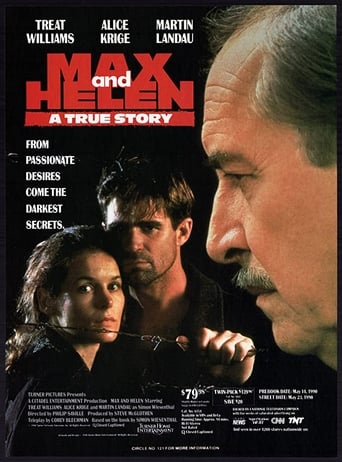
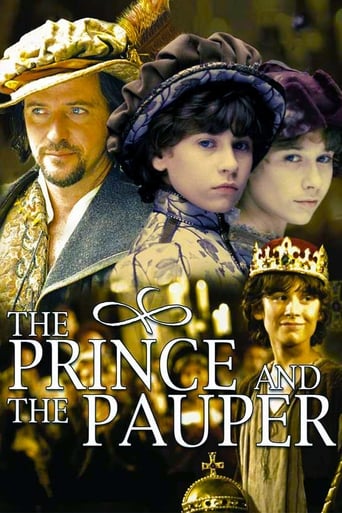





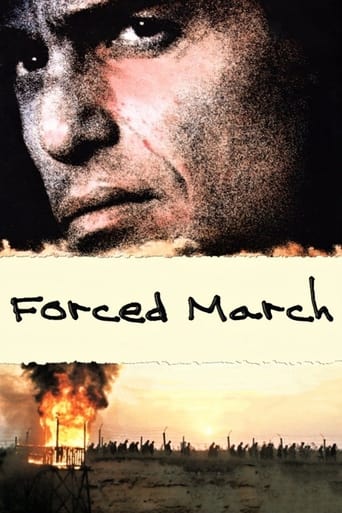















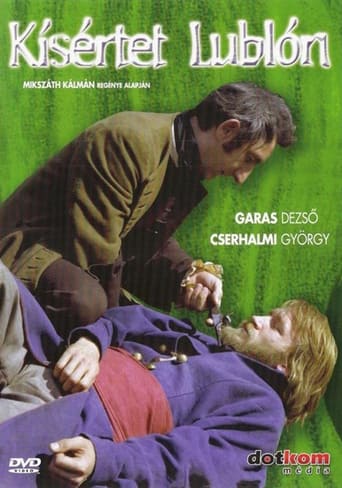









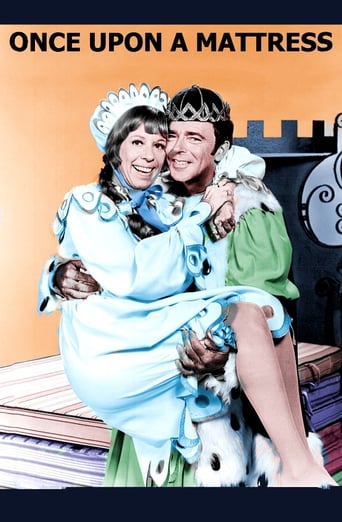
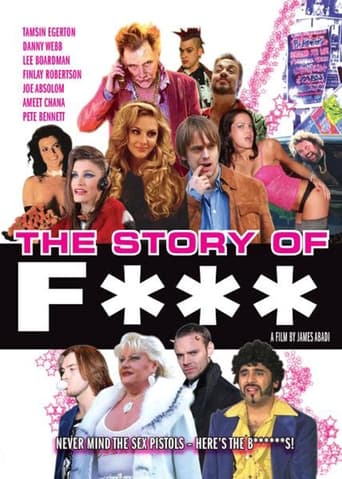






















































Yesterday
October, 1956. Colonel lieutenant Szabó sends a platoon with the mission of calming the people demonstrating in the town. The platoon is lined up under the command of Lieutenant Csendes and the soldiers aim at the demonstrators. Szusza Kis changes sides, and Csendes is unable to shoot at his childhood mate. They withdraw.